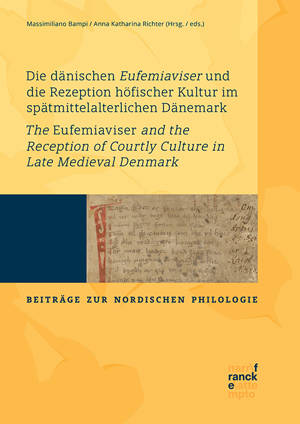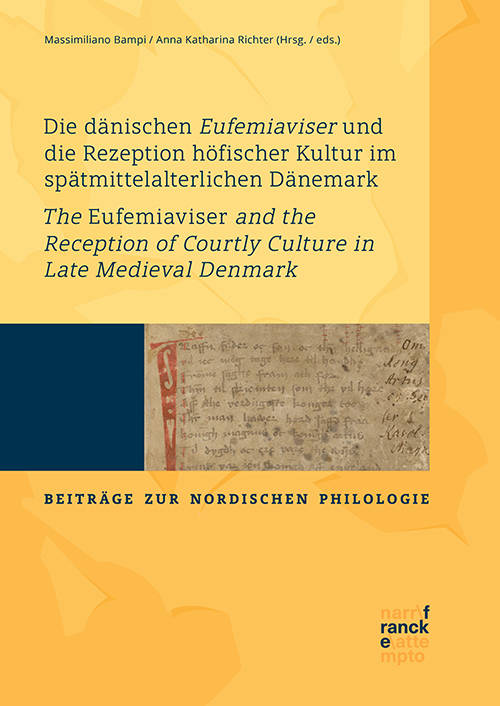
- Afhalen na 1 uur in een winkel met voorraad
- Gratis thuislevering in België vanaf € 30
- Ruim aanbod met 7 miljoen producten
- Afhalen na 1 uur in een winkel met voorraad
- Gratis thuislevering in België vanaf € 30
- Ruim aanbod met 7 miljoen producten
Zoeken
Die dänischen Eufemiaviser und die Rezeption höfischer Kultur im spätmittelalterlichen Dänemark - The Eufemiaviser and the Reception of Courtly Culture in Late Medieval Denmark
€ 38,45
+ 76 punten
Omschrijving
This book presents a collection of important texts of courtly poetry in Late Medieval Scandinavia: the Danish versions of the so-called Eufemiaviser, three Medieval verse romances, named after Queen Eufemia of Norway. They were translated into Old Swedish at the beginning of the 14th century, and into Middle Danish in the 15th century, in a rather complex process, involving various translations and different textual stages. The Danish variants have only survived in one single manuscript (Cod. Holm. K 47, Royal Library Stockholm, ca. 1500). Together with three other narrative texts in the same manuscript, the Danish Eufemiaviser represent a unique testimony to continental courtly narrative in Danish literature in the very beginning of the Early Modern period. In contrast to the Old Swedish texts, the Danish Eufemiaviser have been treated only marginally in Scandinavian research so far.
Specificaties
Betrokkenen
- Uitgeverij:
Inhoud
- Aantal bladzijden:
- 216
- Taal:
- Engels
- Reeks:
- Reeksnummer:
- nr. 68
Eigenschappen
- Productcode (EAN):
- 9783772087509
- Uitvoering:
- Paperback
- Afmetingen:
- 172 mm x 16 mm
- Gewicht:
- 426 g

Alleen bij Standaard Boekhandel
+ 76 punten op je klantenkaart van Standaard Boekhandel
Beoordelingen
We publiceren alleen reviews die voldoen aan de voorwaarden voor reviews. Bekijk onze voorwaarden voor reviews.







